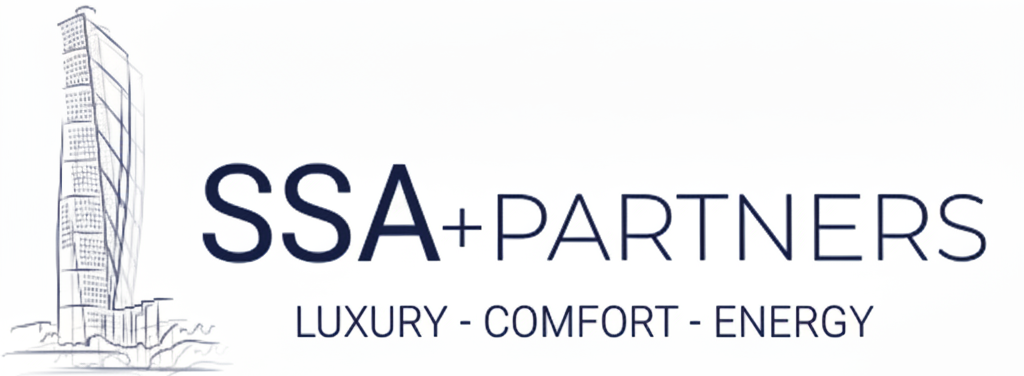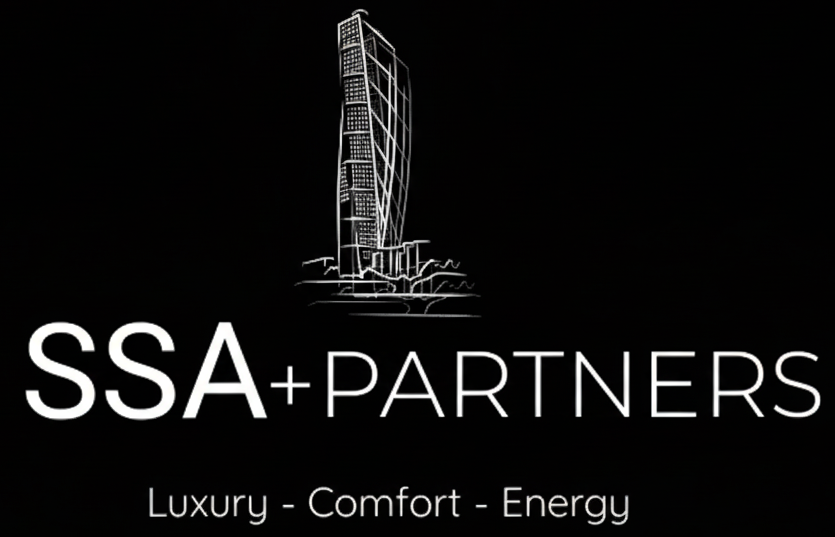UAE GREEN BUILDING STANDARDS
A short abstract of green buildings procedures to be applied in UAE
The preceding overview of green building regulations in the UAE, which includes Estidama, Al Sa'fat, and Barjeel, is intended as a high-level strategic summary. This text provides a concise introduction to each standard's core principles and their role in a project's implementation roadmap. For all specific legal requirements, technical specifications, and official compliance pathways, the definitive information is available on the dedicated government websites. For in-depth details, we encourage you to consult the official resources provided by:
- Estidama in Abu Dhabi.
- Al Sa'fat portal in Dubai: The definitive information is available on the official web site .
- Barjeel in Ras Al Khaimah: The official regulations are provided by the Ras Al Khaimah Energy Efficiency and Renewables Office.
- These are the authoritative sources for all project-related documentation.
The Estidama Framework : AbuDhabi
Abu Dhabi’s Estidama system represents one of the world’s most comprehensive green building frameworks, tailored specifically for the Arabian Gulf’s unique environmental challenges. Unlike international systems that often require adaptation, Estidama was built from the ground up for this climate.
Pearl Rating System Components
The Pearl Building Rating System evaluates projects across seven categories, each weighted according to regional priorities:
Integrated Development Process (IDP): This isn’t just about documentation—it’s about proving your team collaborated effectively from conception through operation. Think of it as quality assurance for sustainable design thinking.
Natural Systems: In a desert environment, every preserved habitat matters. Projects earn credits for protecting existing ecosystems and creating new green spaces that support biodiversity.
Liveable Buildings: Indoor environmental quality takes precedence here, recognising that occupant health directly impacts productivity and satisfaction.
Quick scenario: Imagine you’re developing a mixed-use project in Abu Dhabi. Your Estidama compliance strategy might involve installing smart glass that automatically adjusts tint based on solar conditions, reducing cooling loads while maintaining natural light—a perfect example of technology meeting regulatory requirements.
Mandatory vs. Optional Credits
Estidama’s structure includes mandatory requirements that every project must meet, plus optional credits for achieving higher Pearl ratings. This tiered approach allows flexibility while ensuring minimum performance standards.
Mandatory Elements Include:
- Energy and water metering systems
- Construction waste management plans
- Indoor air quality monitoring
- Sustainable site planning principles
Al Sa'fat Program : Dubai
Dubai Municipality’s approach to green building regulation reflects the emirate’s business-friendly philosophy: clear standards with streamlined compliance processes. The Al Sa’fat program, launched in 2014, has evolved into a sophisticated framework that balances environmental performance with economic viability.
Al Sa’fat Rating Categories
Dubai’s system recognises that different building types require different sustainability strategies. The program offers specialised pathways for:
Residential Buildings: Focus on energy efficiency, water conservation, and indoor environmental quality. Single-family homes and apartments follow different criteria, recognising varied usage patterns.
Commercial Buildings: Emphasis on operational efficiency, occupant productivity, and lifecycle cost optimisation. Office buildings, retail spaces, and hospitality projects each have tailored requirements.
Industrial Facilities: Specialised criteria addressing process efficiency, waste management, and environmental impact mitigation specific to manufacturing and logistics operations.
The genius of Al Sa’fat lies in its practical flexibility. Unlike rigid point-based systems, it allows projects to demonstrate compliance through multiple pathways, accommodating Dubai’s diverse architectural landscape.
Integration with Building Permits
Dubai has successfully integrated green building requirements into its standard permitting process, eliminating the traditional separation between sustainability compliance and building approval. This streamlined approach reduces project timelines while ensuring consistent application of green standards.
Recent data shows that projects meeting Al Sa’fat requirements receive building permits 20% faster than non-compliant applications, creating a clear business incentive for early sustainability planning.
Barjeel Regulation: RAK
Ras Al Khaimah's approach to green building is a central pillar of its Energy Efficiency and Renewable Energy Strategy 2040. The emirate’s flagship program, Barjeel, meaning ‘wind tower,’ embodies a philosophy of practical sustainability that leverages traditional knowledge to achieve modern, measurable results.
Barjeel Certification Categories
RAK's system is designed to provide clear pathways for different project complexities, ensuring a balanced and effective application of standards. The program offers two main regulatory levels:
- Fundamental Green Building Regulations: Sets minimum requirements for energy efficiency, water conservation, and material use, applicable to simpler structures like private villas and smaller buildings.
- Comprehensive Green Building Regulations: Applies to larger, more complex projects such as commercial buildings, hotels, and public facilities, with broader criteria including HVAC design, renewable energy integration, and enhanced waste management protocols.
The strength of Barjeel lies in its straightforward and focused approach, prioritising the most impactful elements of sustainability without the complexity of a rigid points-based system. This pragmatic framework ensures minimal cost impact while delivering significant long-term savings for building owners.
Integration with Building Permits
RAK has made the Barjeel regulations an integral part of its standard building permit process. After a voluntary pilot phase, compliance became mandatory for all new constructions, including those in economic and free zones. This streamlined integration provides a clear market signal and ensures a consistent application of green standards from the project's inception.
Barjeel projects are designed to deliver a substantial return on investment, with a minimal increase in construction costs typically paid back within five years, creating a clear and direct financial incentive for sustainable design.




